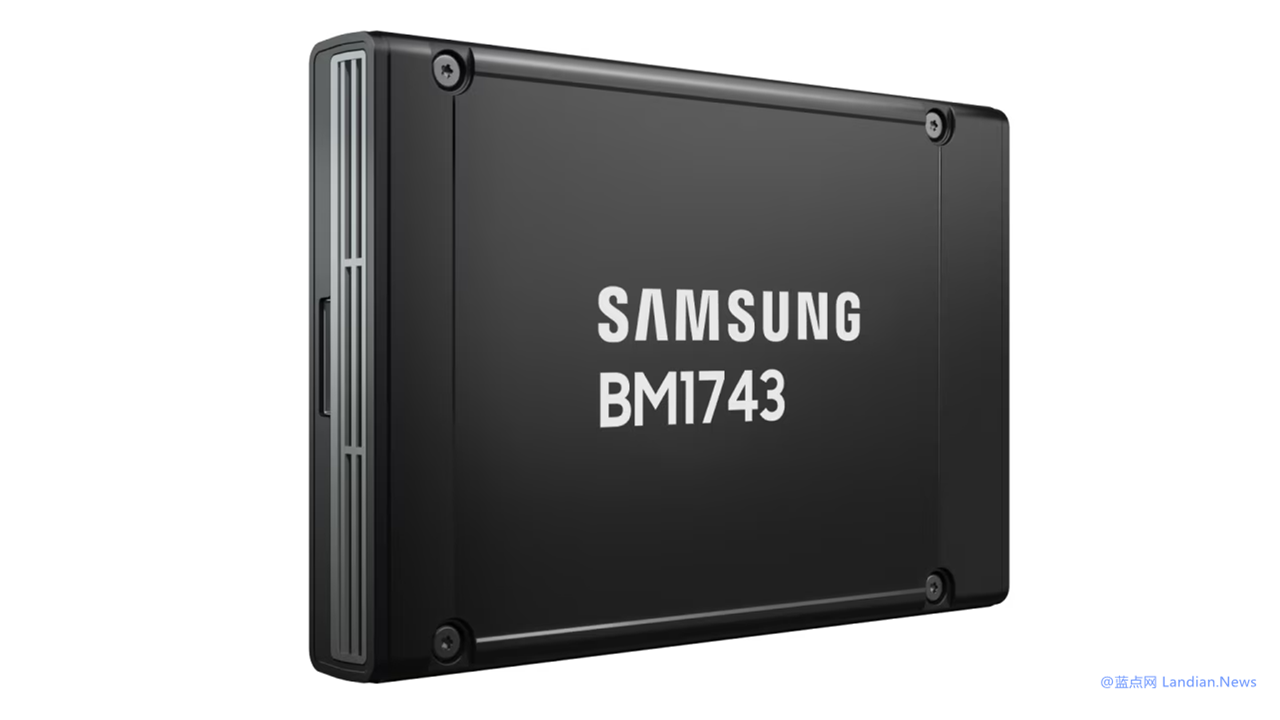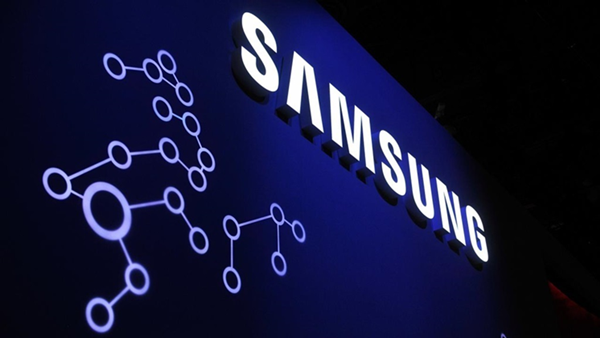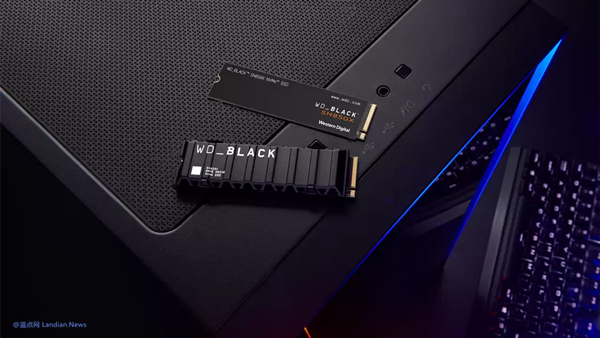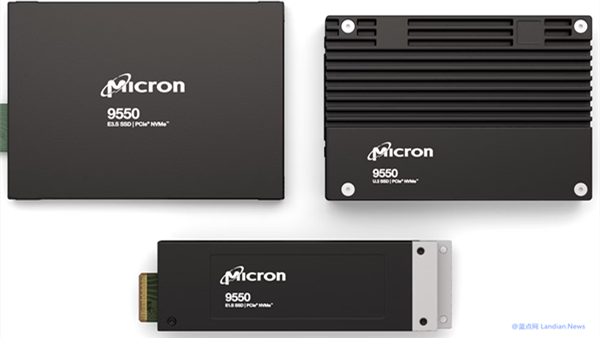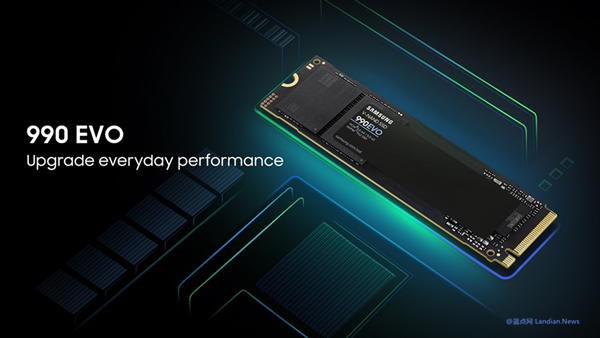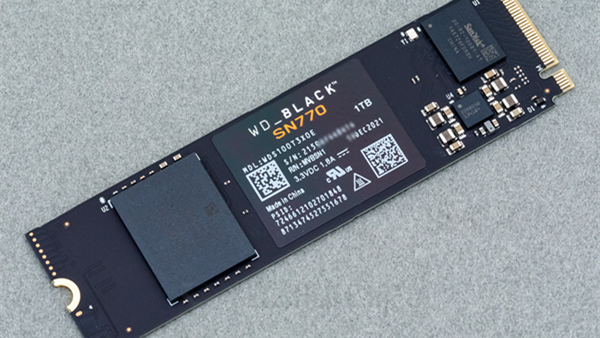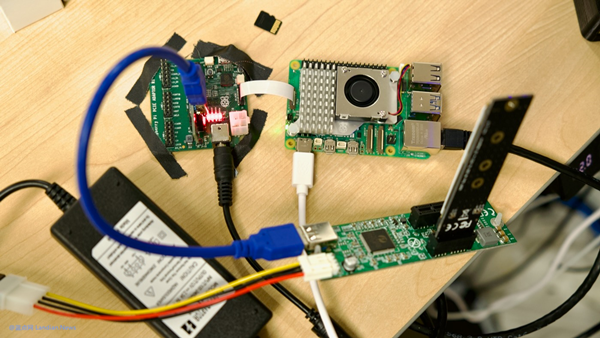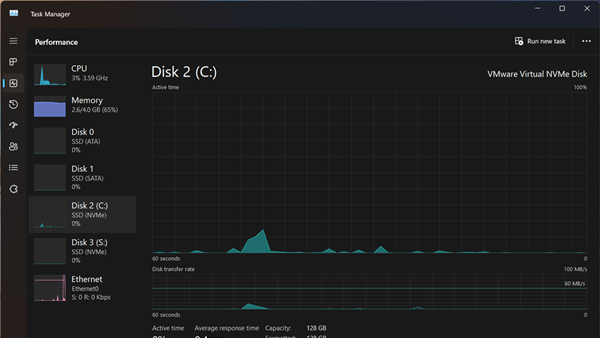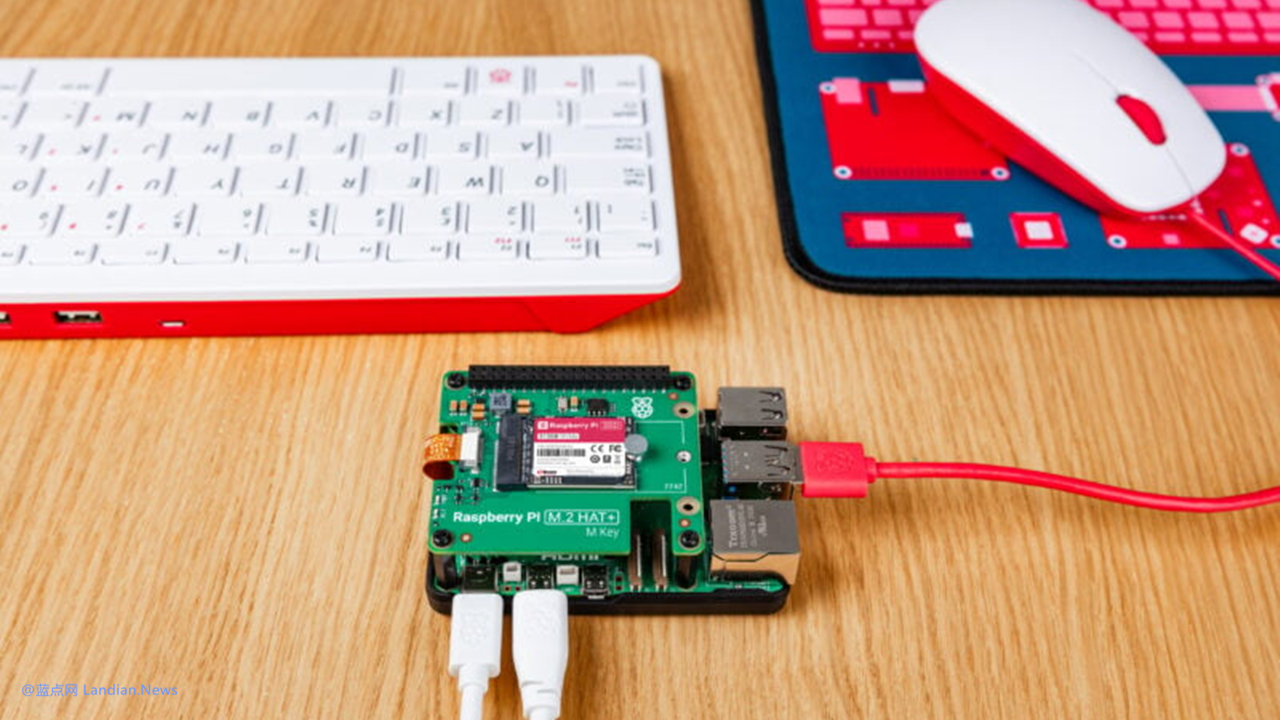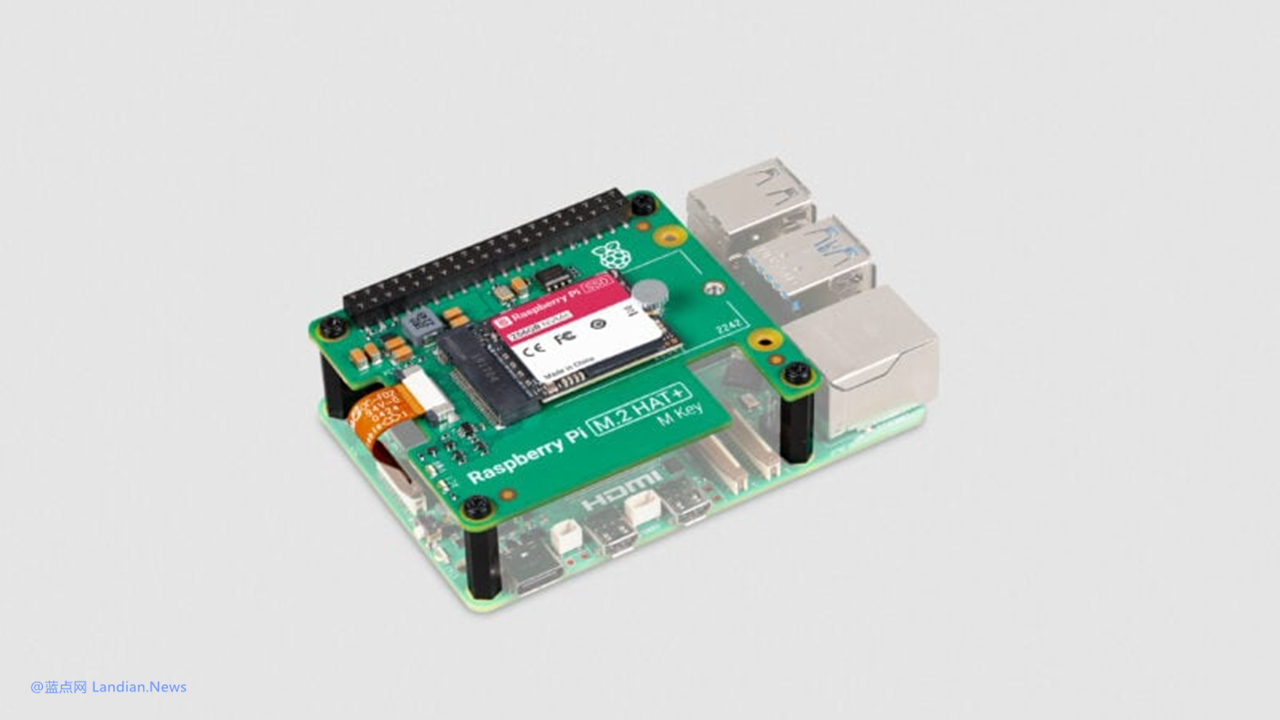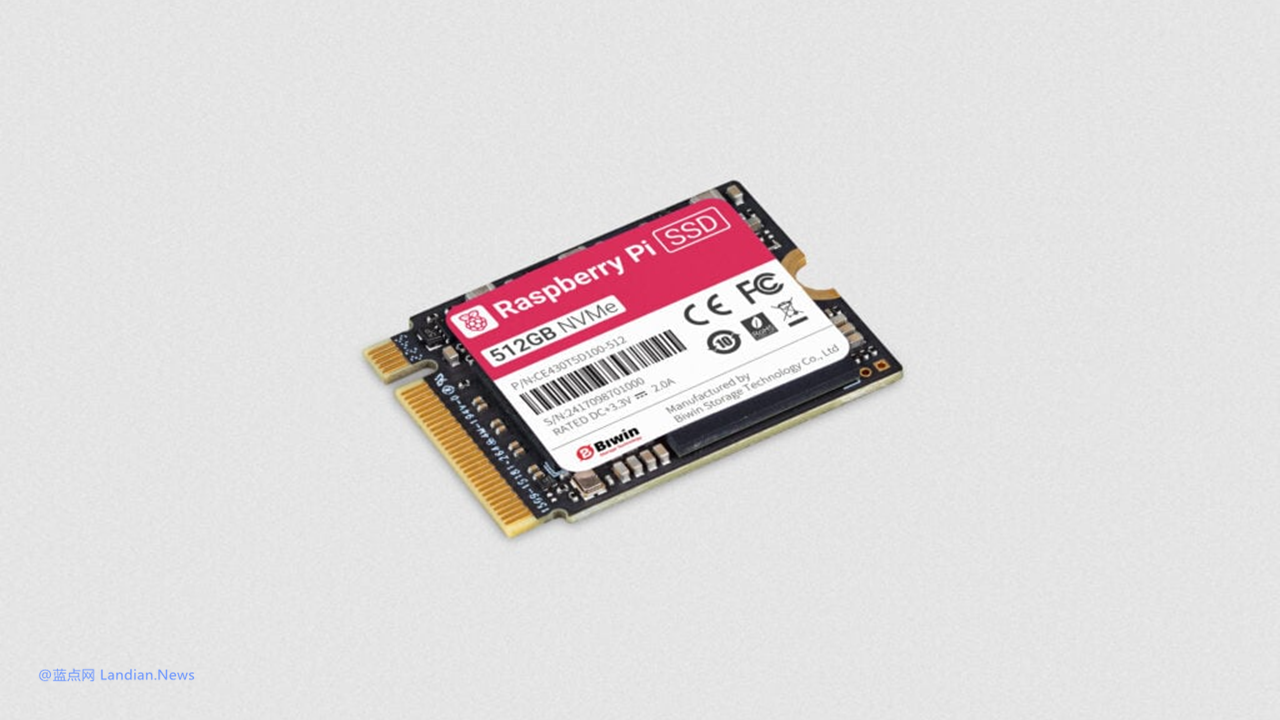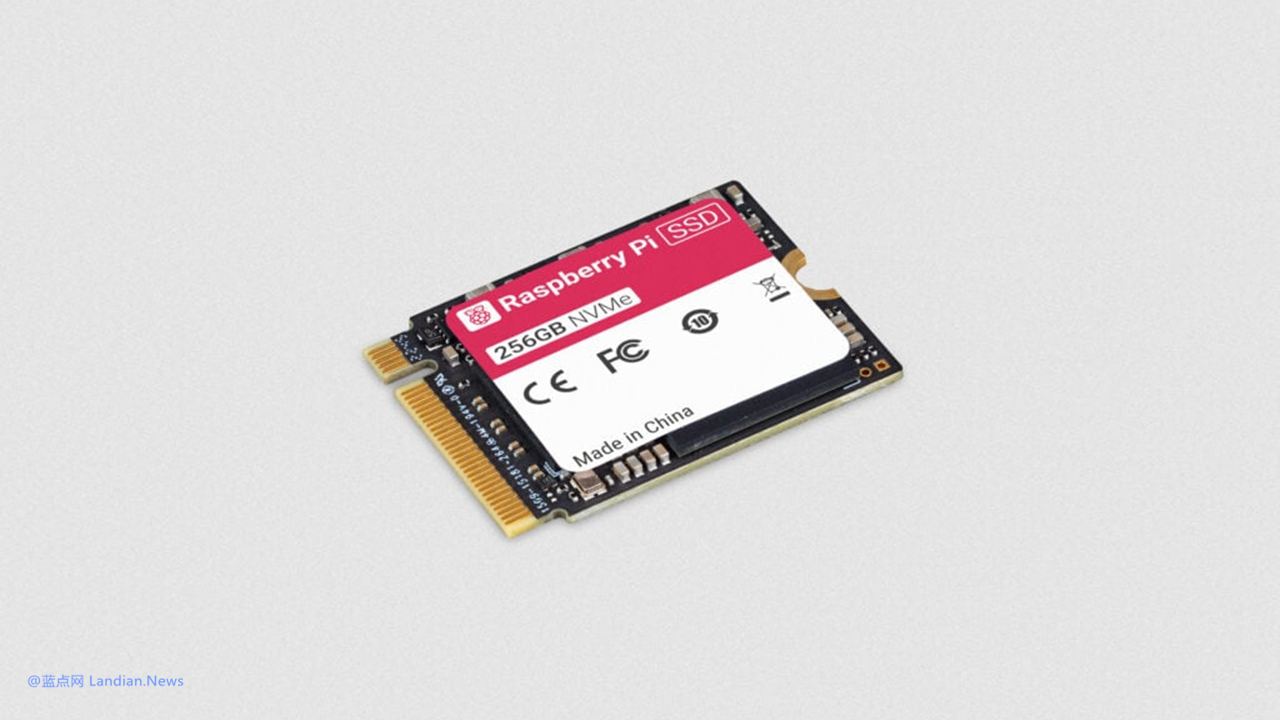Samsung Launches BM1743 U.2 Interface Data Center-Grade SSD with Capacities Up to 61.44TB, Utilizing QLC NAND
In June, Samsung Electronics introduced the new solid-state drive (SSD), the Samsung BM1743, which seemingly did not garner much attention since it is designed for data center rather than consumer applications.
The BM1743 is specifically crafted for data-intensive storage scenarios within data centers, boasting a maximum capacity of 61.44TB. Samsung plans to release a 120TB version in the future.
This SSD features the typical data center U.2 interface, supports PCIe 4.0/5.0 x 4 protocol, and uses Samsung's 7th generation V-NAND QLC flash memory. It offers a continuous read speed of 7,200MB/s and a write speed of 2,000MB/s.
In terms of 4K IOPS performance, the BM1743 achieves 1,600K random reads and 110K random writes, which may not seem very high but should suffice for read-intensive storage scenarios.
Below is an image of the standard U.2 version, which uses the common 2.5-inch SSD size:
Samsung aims for this data center SSD to be utilized in edge AI inference and content delivery applications. The demand for storage in the AI field is rapidly increasing, and AI model providers need not only powerful GPUs but also high-performance SSDs to enhance data retrieval and response times.
The SSD mainly offers compatibility through its U.2 interface, but a PCIe 5.0 x 4 version with an E3.S interface is also available, allowing enterprises to deploy it in servers of various specifications according to their needs.
The press release from Samsung did not mention the power consumption of this SSD, as its main offerings are massive storage and high performance (compared to HDDs), making power consumption a secondary concern.
For enterprises and data center providers, the BM1743 holds significant appeal due to the limited competition in the market. Other SSDs offering 61.44TB capacities include Solidigm's D5-P5336 and Western Digital's WD SN655, both also utilizing PCIe interfaces.
Other SSD manufacturers such as KIOXIA, Micron, and SK Hynix have yet to release SSDs with capacities over 60TB, leaving Samsung, Solidigm, and WD to share this market segment for the time being.
